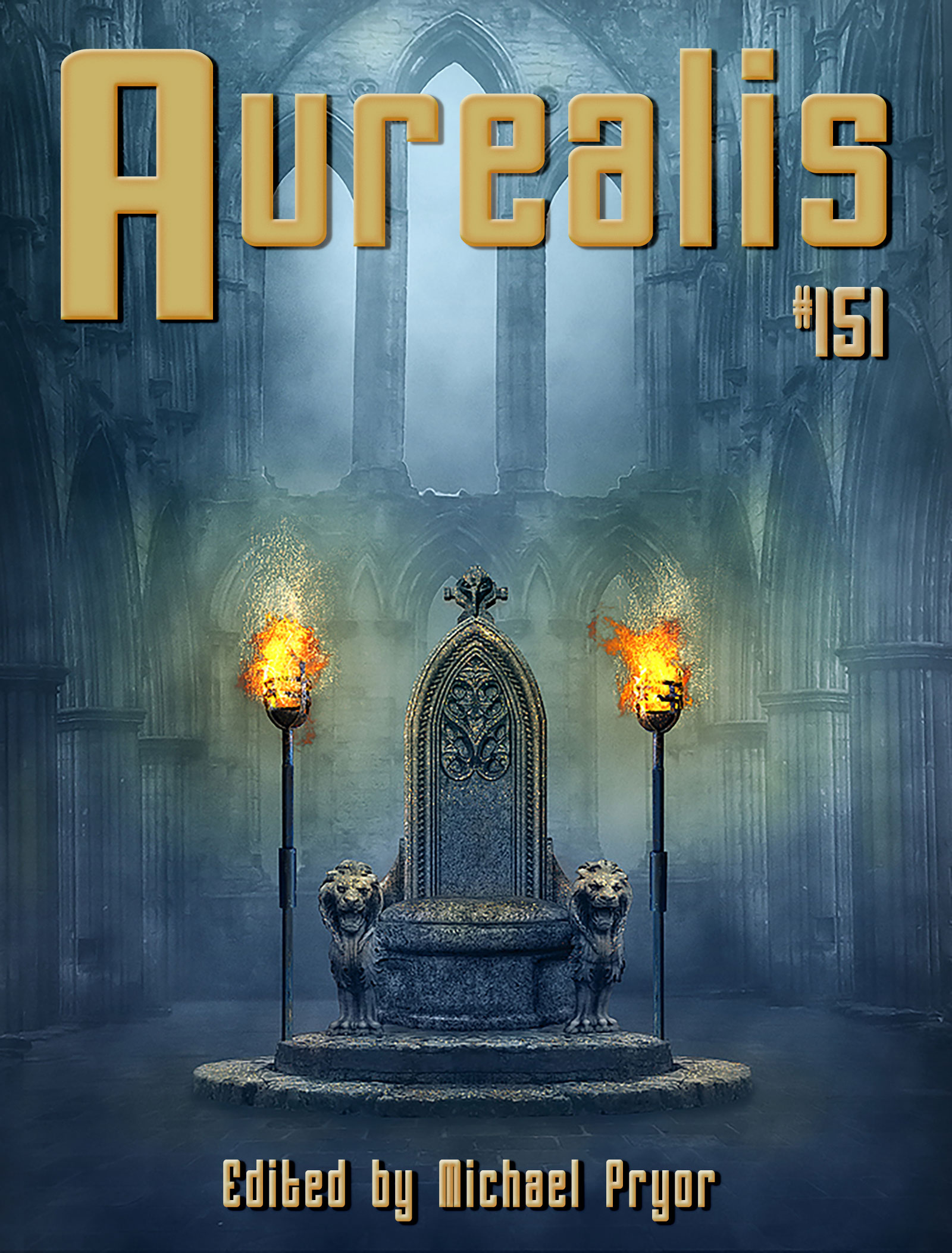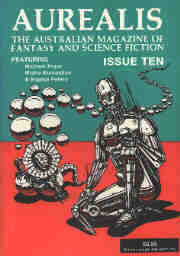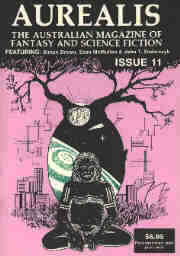Aurealis #151
$3.99
Aurealis #151 features stories from David Dick, Tania Fordwalker and Julian Gyll-Murray. Our non-fiction comes from Nicholas Sheppard, Sarah Fallon and Rebecca Fraser. Aurealis—your F/SF heaven.
- From the Cloud — Michael Pryor
- Convenience Viking — David Dick
- Ashes — Tania Fordwalker
- The Bedlam Undesirables — Julian Gyll
- Who Owns the Universe? — Nick Sheppard
- Where Have All the Good Mums Gone — Sarah Fallon
- Gateways to Horror — Rebecca Fraser
For those of you considering writing, here’s a collection of what we call ‘one percenters’. They’re granular, nitty-gritty aspects of writing that can make a difference. We call them ‘once percenters’ because, individually, they might only improve your writing by a small amount but, in striving for the best writing possible, they’re worth considering.
- Avoid fluffy intensifiers (incredibly, amazingly, unbelievably).
- Be careful of ‘really’ instead of ‘very’.
- Adverbs can be problematic, especially an over-reliance on them.
- Use contractions for more natural sounding dialogue.
- Avoid sentences that start with ‘As you know, Brian …’ They’re likely to lead to an info-dump.
- Be careful with sentences that start with ‘There was …’ or ‘There were …’ They can produce passive sentences. Find more robust ways to start the same sentence by looking for the true subject.
- Avoid characters having names that start with the same letter.
- Get the main character’s name into the first paragraph.
- Don’t be afraid of using ‘said’ in dialogue attributions.
- Learn the difference between the comma and the full stop.
- Avoid taking the descriptive shortcut of comparing a character to a famous film star.
- In fact, don’t take descriptive shortcuts at all.
- Find ways other than using adjectives to describe.
- Be careful of using two ‘ands’ in a sentence. ‘He went down to the shop and saw a chook and he was surprised.’
- Avoid the overuse of alternative descriptors (Joe, the red-haired boy, Bill’s best friend, the joker).
- Be very, very wary of including a dream sequence.
- Watch out for the ‘somehow’ trap. If your hero ‘somehow’ gets out of a sticky situation or ‘somehow’ finds that very thing she needs, you’re taking shortcuts.
Like almost all writing tips, these are debatable, but even thinking about such things can lead to better writing.
All the best from the cloud!
Michael Pryor
From Convenience Viking by David Dick:
My Convenience Viking, Gunther, has been a great help in constructing my daily routine. He makes spectacular filtered coffee (made from single origin Tanzanian beans), provides an encouraging voice during my exercises, and knows exactly when I am between meetings to bring in my organic oats with natural honey.
From Ashes by Tania Fordwalker:
The bushfires drew closer that morning, thrusting splinters of dirty red daylight through gaps in the lounge room blinds. I wasn’t surprised when the knock at the door came. If the fire brigade was here to hustle me along, at least I’d get to clap eyes on a firm jawline or two. That’d do me a world of good.
From The Bedlam Undesirables by Julian Gyll:
They call me Shadowfriend—but that is not my name, and Shadow is not my friend.
From Who Owns the Universe? by Nick Sheppard:
On Earth, ownership of land is a complicated history of migration, conquests, dispossession, squatting, land sales and inheritance. The International Court of Justice hears disputes over national boundaries (if the parties don’t fight it out with armies) while the court systems of individual nations hear disputes over ownership of land within nations.
In space, however, no-one can hear you claim possession.
From Where Have All the Good Mums Gone by Sarah Fallon:
Since becoming a mother I’ve become aware of the dearth of mothers in the fantasy I’ve read and watched. By and large they’re excluded from the narrative completely, either fridged at the start—for heroic motivation purposes—or not even mentioned. When a mother is permitted a little screen time, they appear absent in other ways—neglectful, distracted or incompetent—or they’re evil, taking their model of motherhood from the stepmothers of fairytale.
From Gateways to Horror by Rebecca Fraser:
If you’re a writer of horror, you might have noticed one of two things happen if you announce this fact at a social gathering. Some people will take a step forward, eyes alight with interest; others will take a step back, eyes roaming the crowd for a way to make a polite exit. Whichever reaction you get, one of the most commonly asked questions is ‘How did you get into horror?’ This is usually accompanied by a variation of the observation ‘But you always seem so nice.’ I am nice. We are nice. But that’s a whole other article…





